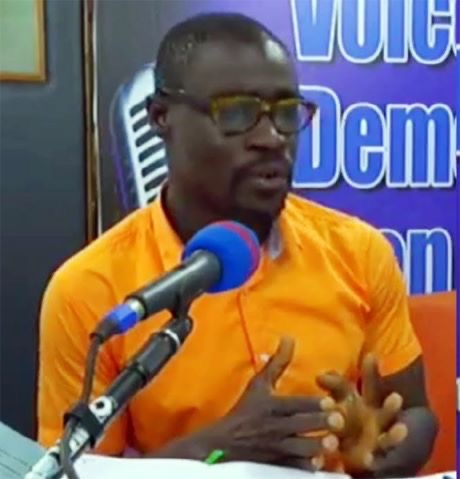By Amin Kef Sesay
Many Sierra Leoneans have opined that the SLPP MP for Constituency 132 did nothing wrong in going public with his allegation that Parliament is itself non- transparent and non-accountable in the utilization of funds provided for its operations by the Ministry of Finance.
Hon. Tawa Conteh went public with his accusation after the House of Parliament failed to heed to his objection to the inclusion of a non-accountable daily foreign travel imprest for the President, Vice President and the Speaker of Parliament in the 2020 Finance Bill, which he and several other MPs on both sides of the aisle maintain has the possibility to open a flood gate of corruption by the Executive arm of Government.
The SLPP Publicity Secretary has not taken kindly to what he called anti-party activity by Hon. Tawa Conteh and wants him called to quarter deck by the SLPP authorities.
Most unfortunately, even though he is right in stating that Hon. Tawa Conteh must toe the party line, what he fails to realize is that in democracies, all Members of Parliament are elected by groups of citizens of the country. Thus, the roles that parliamentarians fulfil are summarized as representatives, legislators and scrutinizers of the Government.
The first refers to the fact that MPs have been elected to Parliament as representatives of their electorates.
The second reflects what most people see as the central responsibility of an MP, to pass legislation, whether original or changes to existing acts.
The third covers the scrutiny or oversight that parliamentarians are expected to exercise over the workings of the Executive, including the implementation of laws passed by Parliament. This function also extends to the support or criticism of proposals placed before Parliament by the Government.
Questions immediately arise: Who does the MP represent, only those who elected him or also those who opposed his election? What if a piece of legislation proposed by the MP’s own party is contrary to the wishes of his electorate?
MPs will agree that they are representatives, not delegates of the people who elected them. They will try to exercise judgment on behalf of those they represent rather than subordinating their views to the party under whose ticket they entered parliament, on the premise that the interest of the greater good of the people exceeds any other consideration.
MPs may sometimes find themselves not willing to be the delegates of either their constituencies or their political parties, but wanting to take up a position that is their own and to vote according to their conscience on some issue. Parties do allow some latitude to their MPs in certain cases so that they may vote in this manner.
There is only one restriction that all Parliaments place upon their Members as to representation and that is they cannot appear before the House or in a parliamentary committee to espouse any view or to represent any individual, group or organization for a fee or reward.
The SLPP Publicity Secretary needs to understand that in all law-making, MPs should remember that the citizens whom they represent want transparency and accountability to be built into all laws, to be able to follow what happens in Parliament and how their money is spent.
Thus, in his/her role as scrutinizer, the MP has several opportunities to help people achieve their desire for effective, accountable Government.
When performing the role of scrutinizer, well-informed MPs can support or criticize draft legislation. If they are supportive of the proposal, they may convince the people at large and fellow MPs of the necessity for a particular measure. They can, in theory, also criticize a weak or badly formulated bill to the extent that the sponsoring Minister may be forced to re-think it.
Very often the whole management philosophy of a department or enterprise can be called into question by MPs who are willing to apply themselves to the necessary tasks.
Work as a scrutinizer enables MPs to examine whether the Government has correctly used the funds released for its Parliamentary operations.
The reward is that MPs help to make the processes of Government more transparent and more accountable to the people who elected them.




